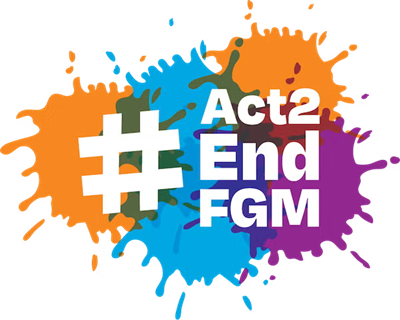COMMENT: Her Body, Her Choice: The International Day of Zero Tolerance for Female Genital Mutilation
17 February 2025
The International Day of Zero Tolerance for Female Genital Mutilation (FGM), observed every year on 6 February, marks an important day to take concerted action to reinforce our commitments to eliminate this criminal practice which continues to impact the lives of millions of women and girls.
In 2024, the United Nations International Children's Emergency Fund (UNICEF) declared that nearly 4.4 million girls - or more than 12,000 each day - are at risk of FGM worldwide. Despite the tremendous progress made over the years, FGM continues to remain a serious challenge in many countries[1].
FGM refers to the practice involving the partial or total removal of the external female genitalia for non-medical reasons. It is often carried out on young girls, typically before puberty. It is recognised internationally as a violation of human rights and the health and integrity of girls and women.
Although primarily concentrated in 30 countries in Africa and the Middle East, female genital mutilation is a universal issue and is also practised in some countries in Asia and Latin America. Female genital mutilation continues to persist among immigrant populations living in Western Europe, North America, Australia and New Zealand[2].
FGM can vary significantly in its execution, influenced by factors such as the skill and steadiness of the practitioner, the availability and use of general or local anaesthesia, and the degree of movement or resistance from the girl during the procedure. These variables can result in inconsistent outcomes, including excessive or insufficient removal of tissue, as well as potential asymmetry in the cutting.
FGM is one of the most painful and traumatic medical procedures, often resulting in severe health complications for women and girls. Immediate consequences often include intense pain, excessive bleeding, and infections, which can be life-threatening if not treated properly. Long-term effects may involve chronic pain, urinary and menstrual problems, and complications during childbirth, including prolonged labour and increased risk of caesarean delivery. Additionally, FGM can result in psychological trauma, manifesting as anxiety, depression, and post-traumatic stress disorder (PTSD). The cumulative health impacts of FGM not only affect the physical well-being of women but also their emotional, sexual, and social lives, hindering their overall quality of life. It is distressing and damages women's relationships in the long term and how they feel about themselves. It has a huge destructive psychological impact on women's adult life as well.
FGM is rooted in a complex interplay of cultural, social, and economic factors that vary across different communities. One of the primary reasons behind it is religion; cultural traditions and norms; misconceptions about hygiene; a means of preserving a girl or woman's virginity; and enhancing male sexual pleasure. In some cultures, FGM is even seen as a rite of passage, marking a girl's transition to womanhood and eligibility for marriage. This practice is often perpetuated by the fear of social ostracism or stigma for both the girl and her family if she does not undergo the procedure. In such contexts, FGM is viewed as essential for preserving family honour and adhering to community expectations.
“Unfortunately, women's bodies have always been a battlefield. It is always about men's control over women's bodies”, it is a sad quote and while this stark reality is disheartening, it remains ironically true. It underscores the urgent need for us to be advocates for those women who cannot speak for themselves, amplifying their voices and standing in solidarity with them.
To combat FGM, individuals and communities play a crucial role in raising awareness and challenging the cultural and societal norms that perpetuate this harmful practice. Grassroots movements can empower women by providing education on their rights and the health risks associated with FGM. Local leaders and community influencers can be instrumental in shifting perceptions, fostering dialogue, and advocating for change. By creating supportive networks and safe spaces for discussion, communities can encourage women to share their experiences and stand together against FGM, ultimately promoting a collective commitment to ending the practice.
The United Nations (UN) is vital in providing a global framework to eradicate FGM through advocacy, policy-making, and resource allocation. By supporting international treaties and initiatives that emphasise gender equality and women's rights, the UN can help create legal standards that protect women from FGM. Additionally, the UN can facilitate partnerships with local organisations to implement educational programs and outreach campaigns that inform communities about the dangers of FGM. By mobilising resources and fostering collaboration among governments, NGOs, and civil society, the UN can enhance efforts to empower women, promote cultural change, and ensure that their voices are heard in the fight against FGM.
Special Officer for Humanitarian Affairs
United Nations Association of New Zealand
[1] https://www.unicef.org/documents/international-day-zero-tolerance-female-genital-mutilation-2024
[2] https://www.un.org/en/observances/female-genital-mutilation-day

Dr Abeer Youssef
Dr Abeer Youssef is an Adjunct Professor at Victoria University of Wellington, in which she holds a PhD in risk management, water disputes, and decision making. Her research focuses on critical global issues, including water security and resource management. Dr Youssef is also a writer in many international independent digital media platforms in both English and Arabic. She is an Egyptian political and human rights activist and was one of the Egyptian revolution leaders in 2011. As the UNA NZ SO Special Officer for Humanitarian Affairs, Dr Youssef leverages her extensive knowledge and experience to advocate for effective and equitable humanitarian responses, particularly in the areas of water scarcity and resource conflict. Email: [email protected]

